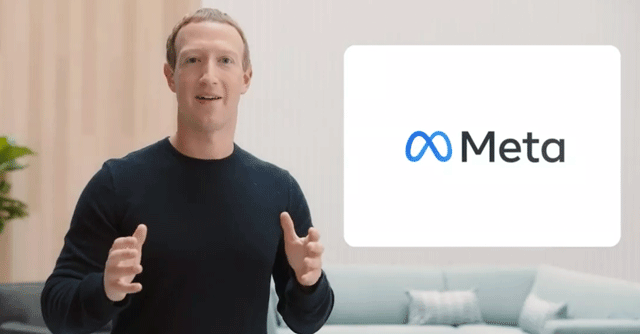
Meta change: From Facebook First to Metaverse First, says Zuckerberg


Social media giant Facebook, today, announced that the company will rebrand itself to represent the fact that it’s now a “metaverse company”. Speaking at the Facebook Connect conference, chief executive Mark Zuckerberg, said that the company will now be called Meta.
Zuckerberg said that the move is to emphasize the fact that the company is focused on building products for the future metaverse. “From now on, we’re going to be metaverse first, not Facebook first,” said Zuckerberg. “That means that over time you won’t need to use Facebook to use our other services. And as our new brand starts showing up in our products, I hope that people come to know the Meta brand and the future that we stand for,” he added.
The metaverse is a concept in computing that dates back to the 1960s and before. It’s a future where people will be able to create virtual avataars, interact in virtual spaces, and there will even be commerce and transactions within the virtual space. Facebook kicked off the Connect conference by speaking about its plans for the metaverse for over an hour.

The company isn’t the first big tech firm to rebrand as part of a new approach to computing either. Like Google and Facebook, Apple dropped 'Computers' from its name in 2007, and Starbucks dropped 'Coffee' from its name in 2011. Google switched to Alphabet in 2015, signalling the company’s desire to expand beyond internet search and advertising. Google itself was once known as Backrub. Instagram started out as Bourbn, and Twitter toddled along as 'Twittr' before the 'E' made it a household name.
Facebook also unveiled new augmented reality (AR) and virtual reality (VR) tools that the company is building in order to power the future metaverse. The company said that it will be inviting developers and creators to join in this journey, and use these products to build applications for the metaverse. The company also showed early demos of people holding virtual meetings through avataars, working out using VR headsets and more.
In the coming year, Facebook will be unveiling a new app, codenamed Polar right now. The app is meant for iOS devices and will allow users to add AR filters and effects to photos directly from their iPhones. The company is also working on ways to allow geofence AR applications, which allows developers to build specific AR effects for real world locations, like a concert or coffee shop.

“For us, it’s a story that started in the dorm room, and grew beyond anything we could ever imagine,” Zuckerberg said, adding that the company plans to spend billions in the coming years on building the metaverse. “We’ve built things that have brought people together in new ways. We’ve learned a lot from struggling with social issues and living under closed platforms, and now it is time to take everything that we’ve learned and help build the next chapter. I’m dedicating our energy to this more than any other company in the world,” he added.
While Facebook insists that the change in branding is to emphasize its efforts towards building the metaverse, many have questioned its timing. Zuckerberg made his metaverse plans public at a time when controversies about Facebook and the possible harms it causes has hit new heights. Whistleblower Frances Haugen leaked documents to the media recently, showing that the company doesn’t apply its moderation rules to celebrities in the same way it does for others.
The company’s own Oversight Board has also said that it was kept in the dark by Facebook about these moderation systems. Haugen also testified in front of the US Congress about the leaked documents and Facebook’s conduct.

“The name change from Facebook to Meta may make sense from a commercial marketing perspective, but it's also a blatant attempt to distance Mark Zuckerberg's company from growing outrage over the harm it is causing to democracy in the US and around the world. Zuckerberg and his lieutenants can't shed the Facebook albatross with a clever brand adjustment. It's past time for meaningful self-regulation combined with carefully designed government oversight,” said Paul Barrett, deputy director of the NYU Stern Center for Business and Human Rights, shortly after the announcement yesterday.
